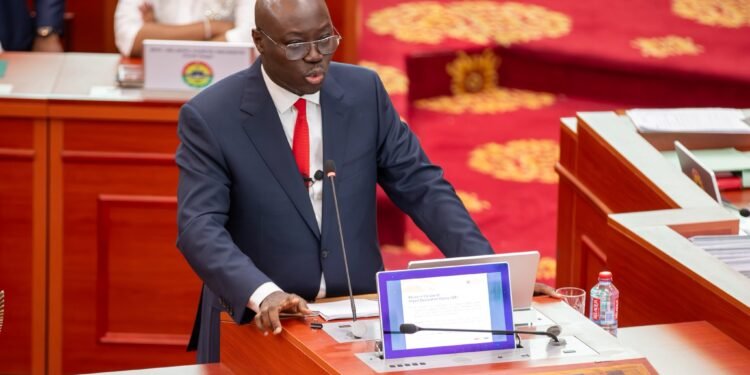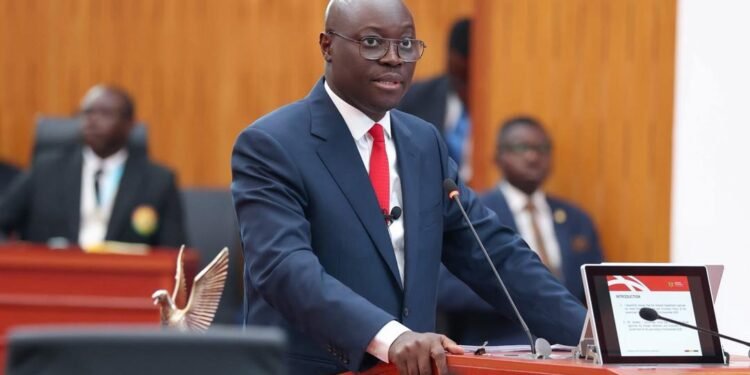The Bank of Ghana (BoG) has taken decisive steps to restore order and transparency in Ghana’s fast-growing digital lending ecosystem.
In a notice issued to the public, the central bank has directed all mobile loan applications and digital credit service providers operating without a valid license to regularise their status by June 30, 2026, or face stiff regulatory sanctions.
The move forms part of the BoG’s broader agenda to promote financial stability, consumer protection, and responsible lending practices in the digital finance space. Over the past few years, the country has witnessed a rapid proliferation of mobile lending apps, many of which operate without regulatory approval, often engaging in unethical debt collection and data privacy violations.
Licensing Drive Begins for Digital Credit Providers
In the notice, the Bank of Ghana announced that effective immediately, it has begun accepting applications from entities seeking to operate as Digital Credit Services Providers (DCSPs). This new licensing regime aims to ensure that all players in the digital lending ecosystem adhere to the highest standards of transparency, data protection, and consumer welfare.
The Bank emphasised that unlicensed entities must submit the required documentation and meet the necessary licensing requirements within the stipulated timeframe. “Failure to comply with this notice will result in appropriate regulatory action being taken against the non-compliant entities,” the statement read.
Industry analysts view this as a significant step toward sanitising the digital lending market, which has seen an influx of unregulated operators taking advantage of consumers’ financial vulnerabilities.
Curbing Abusive Practices and Data Breaches
Unlicensed mobile loan apps have come under fire in recent years for engaging in predatory lending practices, including exorbitant interest rates, privacy breaches, and aggressive debt collection methods. In some cases, borrowers’ personal information, such as photos and contacts, has been shared publicly when they default on payments — a practice that violates data protection laws.
By introducing stricter licensing rules, the BoG seeks to protect consumers from such abuses. Licensed digital credit providers will be required to maintain robust data protection frameworks, disclose interest rates transparently, and follow ethical collection practices. The new guidelines are also expected to improve trust and accountability in the digital credit industry, paving the way for sustainable growth and financial inclusion.
Promoting Responsible Digital Lending
According to financial technology experts, the Bank of Ghana’s directive underscores the importance of responsible digital lending in Ghana’s financial sector. With more Ghanaians turning to mobile apps for quick access to loans, regulators have a duty to ensure that innovation does not come at the expense of consumer protection.
A well-regulated digital lending industry will not only protect consumers but also promote fair competition among licensed players. It will create an environment where innovation thrives within the boundaries of the law, enabling the growth of legitimate fintech firms that can contribute to Ghana’s financial inclusion agenda.
The move is also in line with global regulatory trends, where central banks are tightening oversight of digital lenders to curb illegal lending activities and improve financial system integrity.
A Wake-Up Call for Unlicensed Operators
For unlicensed mobile loan apps currently operating in Ghana, the BoG’s notice is a clear warning. The June 2026 deadline gives operators ample time to comply with licensing requirements or risk being shut down. Regulatory action could include heavy fines, removal from app stores, or criminal prosecution, depending on the severity of the violation.
Experts suggest that affected companies should immediately engage with the BoG to understand the application process and prepare the necessary documentation. This would help them transition smoothly into the formal regulatory framework before the deadline.
The Bank of Ghana’s directive has received positive reactions from both consumer advocacy groups and financial analysts. Many believe the crackdown is long overdue, given the rising complaints from customers who have suffered from unethical practices by unregulated mobile lenders.
Consumer rights groups have lauded the central bank’s efforts, describing the move as a step toward restoring dignity and confidence in Ghana’s digital finance landscape. Some also called on the BoG to intensify public education to help consumers identify and avoid unlicensed apps.
Meanwhile, fintech associations have expressed readiness to collaborate with the central bank to streamline compliance processes and build capacity for smaller operators transitioning into the regulated space.
Ensuring Financial Inclusion Through Regulation
While the BoG’s directive aims to tighten oversight, it is also designed to promote innovation and financial inclusion. Ghana’s fintech ecosystem has been a major driver of economic inclusion, offering access to credit for individuals and small businesses traditionally excluded from the formal banking sector.
The Bank of Ghana’s balanced approach — combining innovation support with firm regulatory standards — is expected to enhance investor confidence and attract more legitimate players into the market. Ultimately, this will deepen the penetration of digital financial services while safeguarding consumers from exploitation.
The Bank of Ghana’s move to clean up the digital lending space marks a major milestone in the country’s financial regulatory evolution. By setting a June 2026 deadline for unlicensed digital lenders to regularise their operations, the central bank has sent a strong signal that the era of unregulated mobile loan apps is coming to an end.
READ ALSO: MP’s “Involvement” in NAIMOS Attack Not a Test of Mahama’s Galamsey Fight – Suhuyini























